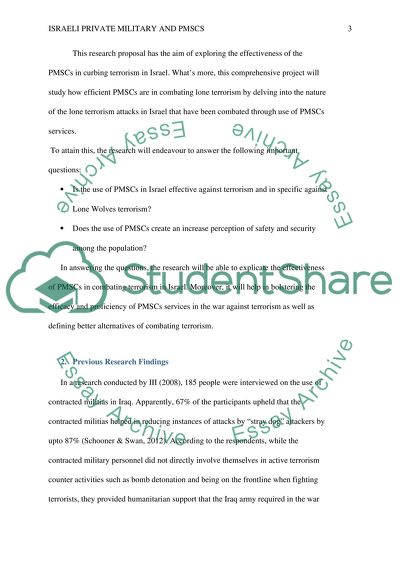Cite this document
(Israeli Private Military and Security Companies in Defence against Research Proposal, n.d.)
Israeli Private Military and Security Companies in Defence against Research Proposal. Retrieved from https://studentshare.org/military/1699847-israeli-private-military-and-security-companies-pmscs-in-defence-against-terrorism
Israeli Private Military and Security Companies in Defence against Research Proposal. Retrieved from https://studentshare.org/military/1699847-israeli-private-military-and-security-companies-pmscs-in-defence-against-terrorism
(Israeli Private Military and Security Companies in Defence Against Research Proposal)
Israeli Private Military and Security Companies in Defence Against Research Proposal. https://studentshare.org/military/1699847-israeli-private-military-and-security-companies-pmscs-in-defence-against-terrorism.
Israeli Private Military and Security Companies in Defence Against Research Proposal. https://studentshare.org/military/1699847-israeli-private-military-and-security-companies-pmscs-in-defence-against-terrorism.
“Israeli Private Military and Security Companies in Defence Against Research Proposal”, n.d. https://studentshare.org/military/1699847-israeli-private-military-and-security-companies-pmscs-in-defence-against-terrorism.


